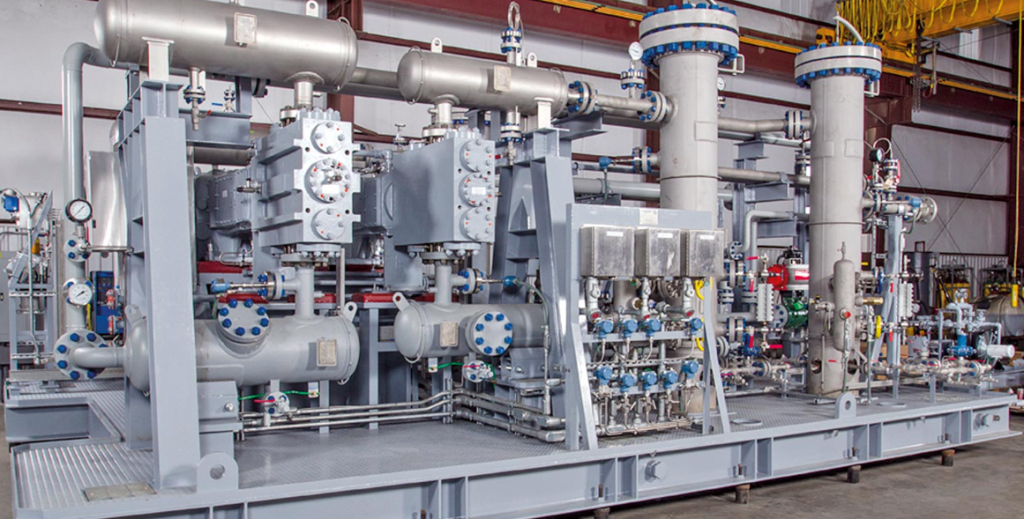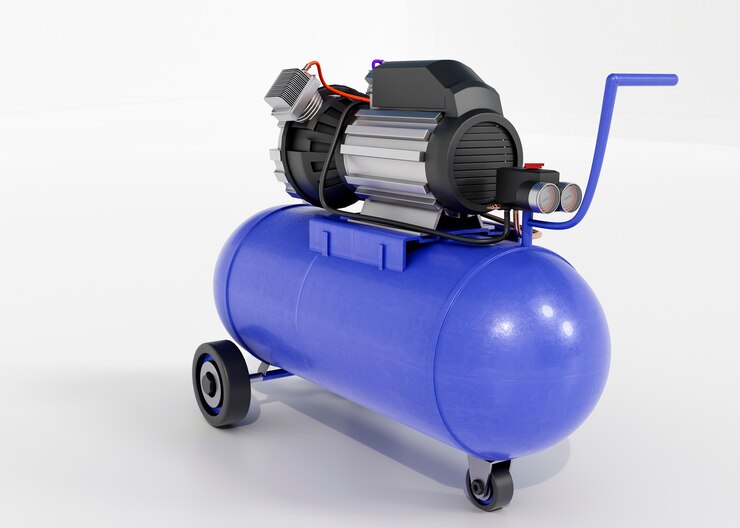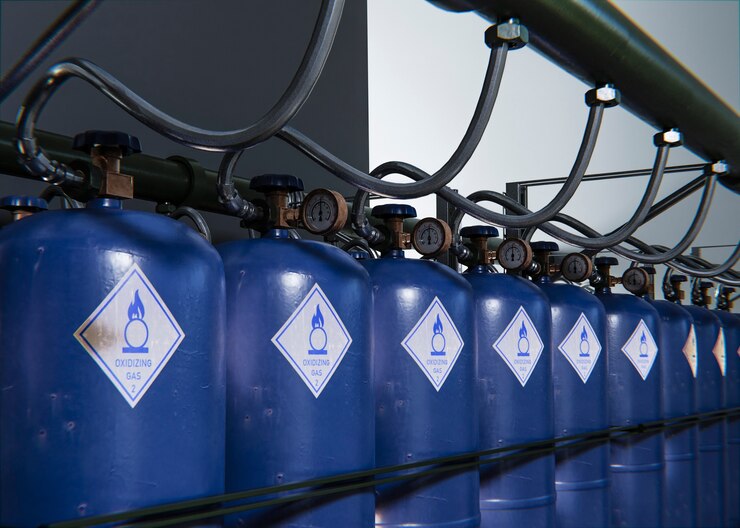N2 Compressor: Types, Applications, and Efficiency

I. Introduction
N2 compressor, the process of increasing the pressure of nitrogen gas, plays a pivotal role in various industrial applications. From enhancing oil recovery to ensuring the quality of food products, N2 compressors are indispensable in today’s industrial landscape. This comprehensive guide aims to demystify the world of N2 compression, shedding light on its types, applications, and efficiency considerations.
A. Definition and Significance of N2 Compression
Nitrogen gas (N2) is an inert gas that finds wide-ranging use across industries. Its unique properties, such as chemical inertness and non-flammability, make it a preferred choice for numerous applications. However, in many cases, N2 needs to be compressed to higher pressures to meet specific operational requirements. This is where N2 compressors come into play. N2 compression involves the use of specialized equipment to increase the pressure of nitrogen gas, enabling its use in various industrial processes.
The significance of N2 compression lies in its ability to:
- Facilitate nitrogen gas storage and transportation.
- Enhance oil recovery in the oil and gas industry.
- Support industrial nitrogen generation for various applications.
- Improve product quality in the food and beverage industry.
- Ensure safety in chemical and petrochemical processes.
B. Purpose of the Guide
The purpose of this guide is to provide a comprehensive resource for anyone seeking to understand N2 compression. Whether you’re an engineer looking to select the right N2 compressor for a specific application or a business owner aiming to optimize nitrogen usage, this guide will equip you with the knowledge and insights you need.
C. Scope of the Guide
This guide will cover a wide range of topics related to N2 compression, including:
- Types of N2 compressors, their working principles, advantages, and applications.
- Common applications of N2 compression across industries.
- Key factors to consider when selecting N2 compressors, including efficiency, reliability, environmental impact, capacity, and flow rate.
- A methodology for selecting the most suitable N2 compressor for your needs.
- Top-performing N2 compressors in each category.
- Real-world case studies highlighting successful N2 compression applications.
- Future trends and advancements in N2 compression technology.
II. Types of N2 Compressors
N2 compressors come in various types, each with its own working principle, advantages, and applications. Understanding these types is crucial for making informed decisions regarding N2 compression.
A. Reciprocating N2 Compressors
Reciprocating N2 compressors, also known as piston compressors, operate on the principle of reciprocating motion. They use a piston within a cylinder to compress nitrogen gas.
- Working Principle:
- The piston moves back and forth within a cylinder, creating a vacuum on one side and compressing the gas on the other.
- This cyclic motion increases the pressure of the nitrogen natural gas.
- Advantages:
- High efficiency at lower flow rates.
- Suitable for applications requiring high compression ratios.
- Robust and reliable.
- Applications:
- Chemical and petrochemical industries.
- Laboratory gas supply.
- Small-scale nitrogen generation.
B. Centrifugal N2 Compressors
Centrifugal N2 compressors operate based on the principle of centrifugal force. They use a high-speed rotating impeller to accelerate and compress nitrogen gas.
- Working Principle:
- The impeller spins at high speeds, imparting kinetic energy to the incoming gas.
- The kinetic energy is then converted into pressure energy, resulting in compressed nitrogen gas.
- Advantages:
- High flow rates and capacity.
- Energy-efficient for large-scale operations.
- Low maintenance requirements.
- Applications:
- Gas pipelines and distribution.
- Refineries and petrochemical plants.
- Power generation.
C. Screw N2 Compressors
Screw N2 compressors employ two interlocking helical screws to compress nitrogen gas. As the screws rotate, they reduce the volume of gas, increasing its pressure.
- Working Principle:
- Two helical screws rotate in opposite directions, trapping and compressing the gas between them.
- The compressed gas is then discharged at a higher pressure.
- Advantages:
- High efficiency across a range of flow rates.
- Low noise and vibration.
- Suitable for continuous operation.
- Applications:
- Food and beverage packaging.
- Aerospace and aviation.
- Pharmaceutical manufacturing.
III. Applications of N2 Compression
N2 compression serves a multitude of industrial applications, making it a versatile technology with widespread relevance.
A. Industrial Nitrogen Generation
One of the primary applications of N2 compression is industrial nitrogen generation. Many industries require nitrogen gas for processes such as inerting, blanketing, and purging. N2 compressors enable on-site production of nitrogen, reducing reliance on delivered gas cylinders and liquid nitrogen sources. This is especially beneficial for industries like electronics manufacturing, where a consistent supply of high-purity nitrogen is essential.
B. N2 Storage and Transportation
N2 compression plays a crucial role in the storage and transportation of nitrogen gas. Compressing nitrogen allows for efficient storage in tanks and the filling of high-pressure nitrogen cylinders for various applications. The transportation of nitrogen in its gaseous or liquid form to remote locations is also made feasible by N2 compression technology.
C. N2 Injection in Oil and Gas Wells
In the oil and gas industry, N2 compression is utilized for nitrogen injection into wells. This process, known as nitrogen injection or gas lift, enhances oil recovery by maintaining reservoir pressure and displacing oil to the surface. N2 compressors are integral to this operation, ensuring a steady supply of nitrogen for well stimulation and production optimization.
IV. Factors for Selecting N2 Compressors
Choosing the right N2 compressor for a specific application involves considering several crucial factors. These factors influence compressor efficiency, reliability, and overall performance.
A. Efficiency and Energy Consumption
Efficiency is a critical factor when selecting an N2 compressor. High-efficiency compressors consume less energy, reducing operational costs. Factors that affect efficiency include compression ratio, isentropic efficiency, and motor efficiency. It’s essential to choose a compressor that matches your desired flow rate and pressure requirements while minimizing energy consumption.
B. Reliability and Maintenance
Reliability is paramount, particularly in industrial settings where downtime can be costly. N2 compressors should have a track record of reliability and require minimal maintenance. Regular maintenance should be straightforward and not disrupt operations significantly.
C. Environmental Considerations
Environmental concerns are increasingly relevant in compressor selection. Compressors should adhere to environmental regulations, minimize emissions, and use environmentally friendly refrigerants, if applicable. Sustainable compressor technologies can align with a company’s commitment to reducing its carbon footprint.
D. Capacity and Flow Rate
The capacity and flow rate of an N2 compressor must match the specific application’s demands. Over- or under-sizing a compressor can lead to inefficiencies and increased energy consumption. Understanding the required flow rate and pressure is essential for proper compressor selection.
V. Selection Methodology
Selecting the right N2 compressor involves a structured approach that considers various criteria and weighting factors.
A. Criteria and Weighting
Establish a list of criteria relevant to your application, such as efficiency, reliability, and environmental impact. Assign weighting factors to each criterion based on its importance to your operation. This helps prioritize factors during the selection process.
B. Data Collection and Analysis
Gather data on available N2 compressors, including specifications, performance data, and maintenance requirements. Analyze this data against your criteria and weighting factors to create a shortlist of potential compressors.
C. Selection Process
The final selection should be based on a thorough evaluation of the shortlisted compressors. Consider factors like life cycle cost, long-term reliability, and compatibility with existing systems. Engage with compressor manufacturers and seek expert advice if necessary.
VI. Top N2 Compressor
To assist you in the selection process, here are some top N2 compressors in each category:
A. Reciprocating Compressor Selection
- [Manufacturer A] – Model X: Known for its high efficiency and reliability in chemical and laboratory applications.
- [Manufacturer B] – Model Y: Ideal for small-scale nitrogen generation with a focus on energy savings.
B. Centrifugal Compressor Selection
- [Manufacturer C] – Model Z: Offers exceptional capacity and efficiency, making it suitable for large-scale gas distribution and power generation.
- [Manufacturer D] – Model W: Well-suited for refineries and petrochemical plants, known for its robust design.
C. Screw Compressor Selection
- [Manufacturer E] – Model V: Versatile and energy-efficient, suitable for a wide range of applications, including pharmaceutical manufacturing.
- [Manufacturer F] – Model U: A reliable choice for food and beverage packaging operations, with low noise and vibration levels.
D. Overall Top Performers
- [Manufacturer G] – Model T: Recognized as an industry leader in N2 compression technology, offering a wide range of compressors catering to various needs.
- [Manufacturer H] – Model S: Known for innovation and sustainability, this manufacturer provides environmentally friendly compressor solutions.
VII. Case Studies
Real-world case studies demonstrate the practical benefits of using top N2 compressors:
A. Real-World Applications of Top N2 Compressor
- Case Study 1: [Company X] achieved significant cost savings and improved product quality by implementing [Manufacturer A]’s Model X compressor for nitrogen generation.
- Case Study 2: [Company Y] increased oil production and reduced downtime through the use of [Manufacturer C]’s Model Z compressor for nitrogen injection in oil wells.
B. Performance Enhancements Achieved Through Top Compressors
Explore how top-performing N2 compressors have enhanced operations, improved efficiency, and contributed to the success of various industries.
VIII. Future Trends in N2 Compressor Technology
The field of N2 compression is ever-evolving, with ongoing advancements and trends that are shaping its future. Stay ahead of the curve by exploring these developments:
A. Advancements in N2 Compressor Efficiency
Manufacturers are continuously working on improving compressor efficiency through innovative design, materials, and digital control systems. Look out for compressors with higher isentropic efficiencies and reduced energy consumption.
B. Sustainable Practices in N2 Compression
Sustainability is a growing concern, and compressor manufacturers are focusing on reducing environmental impact. Expect to see more eco-friendly refrigerants, improved emission controls, and energy recovery systems in N2 compressors.
C. Digitalization and Smart Monitoring in N2 Compressor
Digital technologies are transforming the way N2 compressors are monitored and controlled. Smart sensors, data analytics, and remote monitoring capabilities are becoming standard features, allowing for proactive maintenance and optimization.
IX. Conclusion
In conclusion, N2 compression is a fundamental process with widespread applications across industries. Understanding the types of N2 compressors, their applications, and the factors for selection is essential for making informed decisions. By following a structured selection methodology and considering top performers, you can optimize your operations and achieve cost savings.
As we look to the future, advancements in N2 compression technology will continue to drive efficiency and sustainability. Embrace these trends to stay competitive and environmentally responsible. N2 compression is not just a process; it’s a cornerstone of modern industrial operations, and its importance will only grow in the years to come. Unlock its full potential and supercharge your operations with the right N2 compressor choices.


